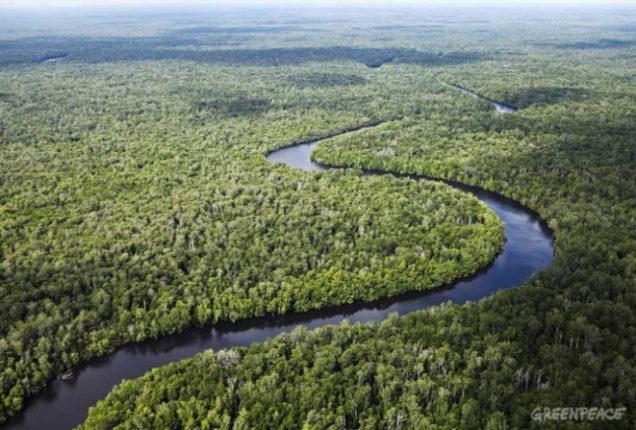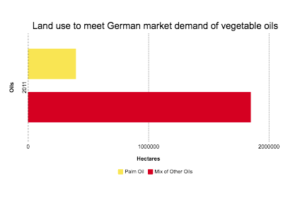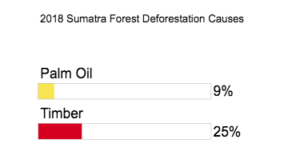
One of the main reasons behind palm oil’s boycott has always been its relationship with deforestation. Science, number, and facts actually prove that supporting sustainable palm oil is the only solution to prevent further deforestation. Check out our charts.
1.Did you know that palm oil is the crop with the highest yield per hectare?
Yes. 3.8 tonnes vs. 0.8 for rapeseed and 0.7 for sunflower.
According to WWF calculations, in 2016, 1.7 million tonnes of palm oil was used to meet German market’s demand. This quantity corresponds to a land use of 397,781 hectares. In the case of total replacement of this ingredient, with a mix of other alternative oils, it would be necessary to exploit 1.85 million hectares of land. Hence, the difference is all in favor of palm oil, which uses 1.45 million fewer hectares than its alternatives.

2. Palm and Deforestation: What’s their relationship?
One of the most recent and extensive scientific studies on the environmental impact of palm oil was published by the International Union for Conservation of Nature (IUCN) in 2018. In the Sumatran forest, palm oil has caused 9.3% deforestation compared to the paper and timber industry which are responsible for over 25% of it.

What is more, a WWF study carried out in 2016, confirmed that boycotting palm oil would not be enough to avert the negative ecological impacts of palm oil consumption, since substitution with other vegetable oils would risk worsening the current situation with a net loss of forests much higher.
The cultivation of palm trees is far from being the only factor in the loss of global biodiversity. On the contrary, it turns out to be the one with less impact.
3. If Palm Oil causes the least impact on deforestation why have companies boycotted it?
Many firms that have replaced palm oil with other less sustainable ingredients were solely driven by commercial interests – even contradicting themselves. These companies could have invested their time and money in improving their existent palm oil supply chain sustainability; however, they preferred to chase short-term speculative policies to boost their sales.
4. What should be the plan forward?
The boycott of palm oil will not save orangutans nor forests, it might cause more deforestation by simply displacing it. Palm oil’s supply chain is the most sustainable. It is the only one that meets stringent sustainability criteria. This is not the case for other vegetable oils – with which palm oil has been substituted. The relationship between man and environment is built upon a delicate balance. We must take into account the right of millions of farmers to cultivate the land while at the same time preserve flora and fauna.
Palm oil is, at this time, the most sustainable cultivation that guarantees this balance. So instead of boycotting it, we have to support sustainable palm oil!
